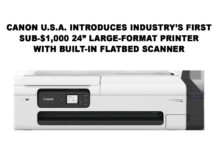 This article expounds on last month’s discussion of the
This article expounds on last month’s discussion of the
purposes and techniques for managing employee success, starting with additional
guidelines for conducting performance appraisals.
Encourage two-way dialogue. An effective performance
appraisal requires interactive conversation. Give employees the message that
their opinions matter and they will get a fair hearing.
To stimulate discussion, ask open-ended questions such as:
"What achievements are you most proud of this year?"; "In your opinion what’s
the best way to…?"and "Are there obstacles to your success on the job?"
Coach people. When discussing problems, talk empathetically
with employees in a way that helps them understand the situation and develop a
plan to improve it. Your support will have a long-term impact on them
personally and increase their effectiveness in the organization.
Identify and agree on goals for the coming year. The goals
should be measurable and/or observable. They should be a stretch but also
achievable. Tie these goals in with both: (1) corporate goals, and (2) personal
value to the employee. Be prepared to sell your suggestions to staff who may
not be receptive to your ideas, and to listen to alternatives proposed by
employees.
It makes sense to develop a collaborative plan that works
for both of you. Allowing employees to be part of the planning and
problem-solving process aids their development and motivates them. People who
take part in the process assume ownership of it. They acquire a personal
interest in achieving the goals they help to develop.
Summarize the results in writing, including your
observations, the employee’s comments, and any resulting action plans. Make two
copies – one for the employee’s file and one for the employee. This
documentation becomes a valuable tool for decision-making about such matters as
salary increases, training budgets and promotions. And in the event that it
becomes necessary to demote or terminate an employee based on inadequate
performance, you have the necessary documentation in place to support your
decision.
Always keep communication channels open
Remember, in building effective working relationships and
staff commitment to the company, formal performance appraisals are no
substitute for regular, interactive communication with employees. At PrintLink,
when we ask candidates why they want to move from their present place of
employment, many cite a lack of communication. Employees express frustration
over not knowing how they’re doing, how the company is doing, or what changes
are occurring – and what they hear is not coming from their supervisors.
Employee recognition programs and incentive-based
compensation
After the discipline of structured performance appraisals is
over, a strategically timed opportunity exists to recognize and reward
employees for the value they’ve already brought to your company over the past
year. The beauty of this timing is that it establishes a results-first sequence
– plus, there are practically an infinite number of creative ways to
express tangible appreciation to employees within your budget. Here are just a
few ideas:
- Monetary
bonus - Framed
certificate of acknowledgement - Gifts
bearing the company logo - Gift
certificates for activities or products that include families or significant
others - Use
of a reserved parking spot for the "Employee of the Year" - Tickets
to industry-related events - Perks
like a car allowance, cellphone or a hand-held organizer - Anything
else you can think of. Just don’t forget to publicize loud and clear to all
your employees that you do measure, recognize and reward excellence.
It’s never too late
A company can adopt a system of annual performance
appraisals any time – even businesses that have gone a number of years
without formal and consistent performance reviews. The trick is to plan and
conduct the appraisals with professionalism and care, and to be sure to review
everyone in the company.
The main thing to remember is that implementing and
maintaining effective performance-appraisal and recognition programs yields far
greater rewards than the effort and expense consumed by the process, including
the following benefits:
- More
clearly defined job functions and expectations - An
effective monitoring and measuring system for job performance - Increased
productivity since employees do better, accomplish more and are motivated to
work toward making your company more successful - Results
first, if your performance-appraisal system is tied to recognition and
incentives - Improved
staff retention because of better employee motivation - Supervisors
and managers are more focused on staff performance - Increased
customer satisfaction as a result of higher service levels from staff - Potential
for improved profits
The list can go on, but to sum it up succinctly: Motivated
employees are valuable assets – and performance appraisals help keep them
motivated.
Victoria Gaitskell is a placement specialist with PrintLink,
a professional placement firm for the graphic communications industry. T: 1 877
413-2600 E: vgaitskell@printlink.com





